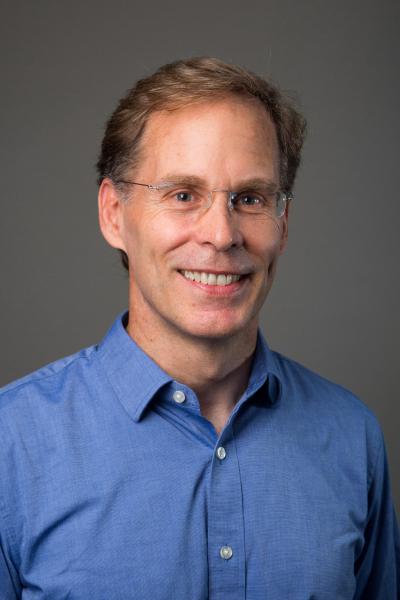
The first job that Erik Olsen held after completing his undergraduate degree was in the Business Strategy Group of Abt Associates, which conducts research and performs program implementation in the fields of health, social and environmental policy, climate change, and international development and is 100 percent employee-owned. It was, he recalls, a great experience.

the Department of Economics at the
University of Missouri-Kansas City,
has received three research
fellowships through SMLR’s Institute
for the Study of Employee Ownership
and Profit Sharing.
Later, while living in San Francisco before attending graduate school, Olsen began to notice that, among the businesses he most enjoyed patronizing, more than a few were also employee-owned. “Alvarado Street Bakery, Rainbow Grocery, the Cheese Board Collective in Berkeley – these businesses helped to broaden my horizons,” says Olsen. “They made me aware of the possibilities for different ways that businesses can be organized, the different degrees of ownership and control that workers can have.”
Olsen says that he can draw a straight line between those experiences and his current research, which focuses on companies with broad-based employee ownership. Olsen’s research seeks to determine how companies in which employees own a majority of the company stock are similar to – and different from – those with minority employee ownership or no employee ownership.
To carry out this work, Olsen has received three research fellowships through SMLR’s Institute for the Study of Employee Ownership and Profit Sharing. He was the first-ever Joseph Cabral Distinguished Scholar and Fellow in 2011, as well as a 2010-11 Louis O. Kelso Fellow and a 2016-17 Robert W. Edwards Fellow for the Advanced Study of Employee Ownership.
Olsen estimates that there are between 10,000 and 12,000 employee stock ownership plan (ESOP) businesses in the United States; in about 3,000, he says, workers own the majority of the company. The goal of his current research is to both quantify the impact of employee ownership on worker behavior and to articulate the ways in which it can democratize the ownership of wealth— data which will be useful for industry and, more broadly, in setting public policy.
When he began his work, Olsen says that he was surprised by how difficult it was to find data on employee-owned companies that could be used to conduct social science research. He began what he calls “shoe leather research to locate, identify, and characterize majority-owned enterprises.”
Olsen says that, in general, business performance benefits from “some form of participatory management.” Olsen says that this is because involving workers in the decisions that affect them facilitates information sharing across the enterprise. “Not only do people in participatory, employee-owned businesses have the ability to share information, they have the incentive to share information,” he says.
Employee ownership is an effective way to address income inequality as well. “We have significant problems,” says Olsen. “Here’s a policy with measurable, achievable results, that can be accomplished within a reasonable time period, within existing legal, political, and economic structures, that is greatly underexplored and underutilized as an option.”
Olsen notes that it is not uncommon for worker-owners to retire with significant assets. “Worker owners retire from occupations at every level of the corporate hierarchy with significant amounts of money in the bank,” he says.
“Unless we democratize the ownership of productive enterprises, we won’t be able to address income inequality,” Olsen says. “This is at the heart of the problem of inequality.”
Olsen says that his long association with SMLR has enhanced his research and his career. “I was a part of the first large cohort of fellows,” he says. “At that time I was an assistant professor and the first among that group to be granted tenure. The support I got from the fellowship program was a big part of that.”
Olsen says that SMLR’s biannual conferences -- the Beyster Symposium and the Mid-Year Fellows Workshop in Honor of Louis. O. Kelso – have become a vital part of his continuing research. “It’s really the premier place to discuss these topics and pursue scholarship along these lines,” he says. “We all come together to discuss our ideas and get feedback.”
Additionally, he says, the Workshops give young scholars access to those who have had a longstanding interest in the concept of employee-owned workplaces. “There was a community of people who were doing this research prior to the advent of the fellows program, starting in the late 1960s and early 1970s, and they have woven those more experienced scholars into this new group in a fairly seamless way.”
This is the third installment in a new series exploring the work of Research Fellows in SMLR’s Fellowship Program on Employee Ownership and Profit Sharing.


